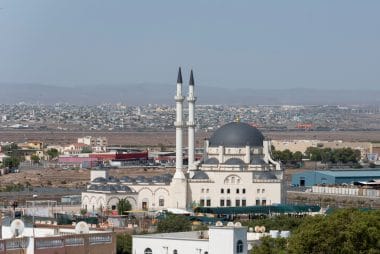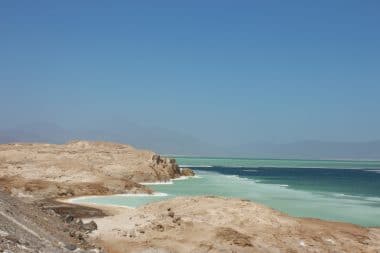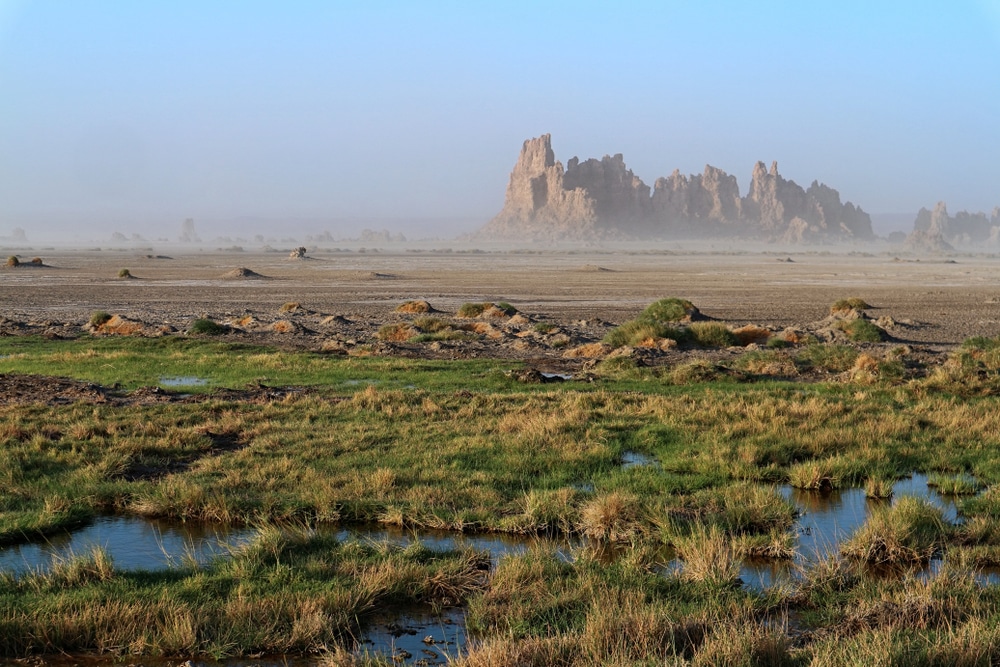Djibouti is a country in Africa. It borders the Red Sea and the Gulf of Aden. Its neighboring countries are the Republic of Eritrea in the north, Ethiopia in the west and south and a small piece of Somalia. The country has an area of 23,200 square kilometers and an estimated population of about 880,000. Of these, more than 600,000 live in the capital of the same name. The Republic of Djibouti has only been an independent state since 1977. Before that, it was a French colony and since 1946 a French overseas territory.
The tourist highlights of Djibouti

At the moment, tourism in the small country is still in its infancy. But Djibouti is a very interesting and extraordinary destination with a lot of potential. It has beautiful beaches, unique snorkeling and diving areas, spectacular landscapes and a turbulent multicultural capital. In addition, the weather is fantastic and ideal for Europeans, especially in the winter months with daytime temperatures of around 30 degrees Celsius. The Red Sea will also have between 25 and 30 degrees Celsius.
Holiday experiences in Djibouti
Tadjoura
For divers and snorkelers, Djibouti is an absolute dream area and an insider tip. It has a coastline of over 300 kilometers and countless underwater volcanoes, atolls and coral reefs. Not far from the capital, on the gulf of the same name, lies the city of Tadjoura, the oldest city in Djibouti and probably the best diving area in the country. The offshore Moucha and Maskali Islands also offer beautiful beaches, coral reefs and a diverse underwater world. A special spectacle can be experienced from October to January in the bay of Ghoubbet. Then the giant whale sharks come very close to the coast and tourists can experience the giants of the seas up close from the boat. Also of great interest are Lac Ghoubbet, a seawater lake surrounded by extinct volcanoes and black lava rocks, and the Petit Bara and Grand Bara salt pans, where you can sand yacht.
Lake Assal

Only a few kilometers from the Gulf of Tadjoura, surrounded by bare mountains, lies Lake Assal. At 155 meters below sea level, it is the lowest point in Africa and saltier than the Dead Sea. Salt crystals have accumulated on its shores over thousands of years and form formations of almost extraterrestrial beauty due to the reflections of light and water. Unlike at the Dead Sea, the few tourists at Lake Assal have the water almost to themselves and can enjoy the strange feeling of literally floating on the salty water in absolute peace. Some tour operators also offer excursions followed by an overnight stay in the open air, a uniquely beautiful experience on starry desert nights.
Lake Abbe
Lake Abbe, near the Ethiopian border and reaching into Ethiopia, is also a salt lake and surrounded by vast salt-encrusted plains and pyramids of salt. There are also various hot springs here, from which steam is constantly escaping. During the rainy season, hundreds of rasa flamingos, but also pelicans and ibises live on and around the lake. In the plain of Gagade, nomads set up camp from April to October and graze their herds on the banks of fertile wadis. With a bit of luck, you can also see antelopes, gazelles, zebras, jackals and hyenas.
The mountains of Djibouti
From the lowest point in Africa at an altitude of over 1,500 meters, it is only a short way in Djibouti. The Goda massif with the almost 1,800 meter high mountain Eger’aleyta is only about 30 meters away. kilometers from Tadjoura accessible by four-wheel drive vehicle. This is where Djibouti’s only forest, the Forêt du Day, is located. Cedars, acacias, wild figs, but also olive trees and juniper bushes grow here. There is even a succulent forest. There are a total of 9 villages in the region, in which mainly members of the Afar people live, some of whom have given up the nomadic life and do some agriculture up here.
Djibouti City
The eponymous capital of Djibouti is a dynamic, fast-growing port city and multicultural. In addition to a large seaport, it also has a huge container port, which is of great importance for the entire region. The country’s international airport is also located here. One of the city’s most significant attractions is the Hamoudi Mosque, the largest of the city’s 80 mosques. A visit to the Marche Central is also worthwhile. At the huge market, people of different skin colors and ethnicities come together to buy and sell. You can get to know the country and its people very well and learn a lot about their everyday life. The tropical aquarium of Djibouti City is also a must for anyone interested in the incredible biodiversity of the Red Sea.


